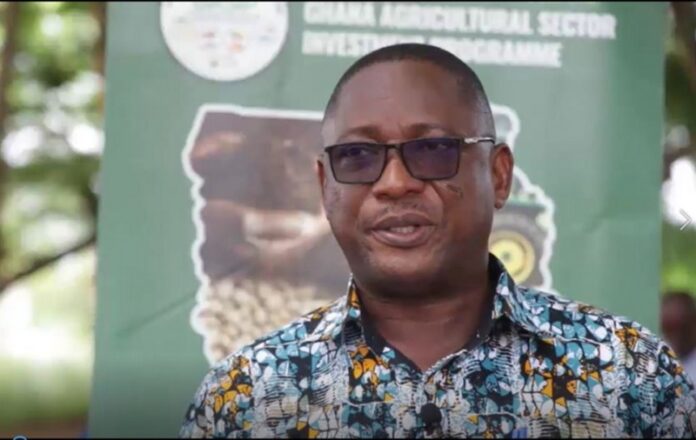Klutse Kudomor, an agribusiness consultant with extensive experience in rural development and women’s empowerment, has called on Ghana’s first-ever female Vice President-elect to champion the fight against teenage pregnancy and rural poverty.
Kudomor, a seasoned advocate for women in leadership, stated that the historic election of a woman to such a high office presents an unparalleled opportunity to address the root causes of social challenges affecting women and girls in Ghana.
Speaking passionately during a community engagement, Kudomor drew connections between poverty, teenage pregnancy, and the lack of economic opportunities for women in rural areas.
“Teenage pregnancy is not just a moral issue; it is a poverty issue,” he asserted. “Young girls, especially in rural communities, fall victim to their circumstances because they lack basic needs like food and financial security.”
Breaking the Poverty Cycle Through Women’s Economic Empowerment
Kudomor, who has worked with Nestlé Central and West Africa and spearheaded initiatives such as the Ghana Agricultural Sector Investment Programme (GASIP), emphasized that creating job opportunities for women could be a game-changer.
“When women have jobs and financial independence, they are empowered to make better decisions for their lives,” Kudomor remarked. “We need policies that go beyond handouts and address the systemic barriers that keep women in poverty.” He urged the Vice President-elect to lead bold initiatives that prioritize women’s economic empowerment, particularly in agribusiness, where opportunities for sustainable income generation abound.
A National Emergency: Teenage Pregnancy Linked to Poverty
Kudomor painted a grim picture of the teenage pregnancy crisis in rural Ghana, describing it as an urgent issue requiring a multi-pronged approach. “When families cannot provide for their children, young girls are often forced to make desperate choices, exposing them to exploitation and early motherhood,” he explained.
He urged the government to not only focus on economic solutions but also revamp family planning systems and expand access to reproductive health services. “Even adults are tempted by circumstances, so why should we expect teenagers to make better choices without guidance and resources?” Kudomor asked.
Strengthening Healthcare and Education Systems
Highlighting existing gaps in rural healthcare, Kudomor commended past efforts to establish Community-based Health Planning and Services (CHPS) compounds but stressed the need for improvements. “These facilities must be strengthened and supported to serve as educational hubs for family planning and reproductive health,” he said.
In addition to healthcare, Kudomor advocated for community-level education programs to empower women and girls with knowledge about their rights and responsibilities. “Education is key to breaking cycles of poverty and dependency. Girls must be equipped with the tools to resist temptations that derail their futures,” he emphasized.
Women in Leadership: A Beacon of Hope
Kudomor celebrated the election of Ghana’s first female Vice President as a milestone for gender equity in leadership. He noted that her historic position provides an opportunity to inspire women across the country to take on leadership roles and advocate for policies that prioritize their well-being.
“This moment is not just symbolic; it is a call to action. Her Excellency must use her office to champion women’s empowerment, from job creation to reproductive health access,” Kudomor stated.
A Vision for Rural Transformation
Drawing from his vast experience in agriculture and rural development, Kudomor outlined a vision for rural transformation driven by women’s empowerment. He highlighted the potential of agribusiness to create sustainable jobs for women and improve food security in impoverished communities.
“In my years of working with women in agriculture, I have seen how empowering them can uplift entire communities,” he said. “This is the kind of leadership we need now—a leadership that prioritizes practical solutions to real problems.”
A Call for Collective Action
Kudomor’s appeal extends beyond the Vice President-elect to include policymakers, civil society organizations, and development partners. He emphasized that addressing teenage pregnancy and poverty requires collective action and sustained investment in women and girls.
“This is not just a government issue; it’s a national issue. Everyone has a role to play in creating a better future for our daughters,” he concluded.
Conclusion: A Bold New Era for Women in Ghana
As Ghana ushers in a new era of leadership with its first female Vice President, Kudomor’s compelling call to action underscores the urgent need for policies that empower women and address the root causes of teenage pregnancy and rural poverty. His vision of economic empowerment, strengthened healthcare, and robust education systems offers a practical roadmap for achieving gender equity and sustainable development.
The question now is whether Ghana will seize this historic opportunity to transform the lives of women and girls, paving the way for a brighter and more inclusive future.

